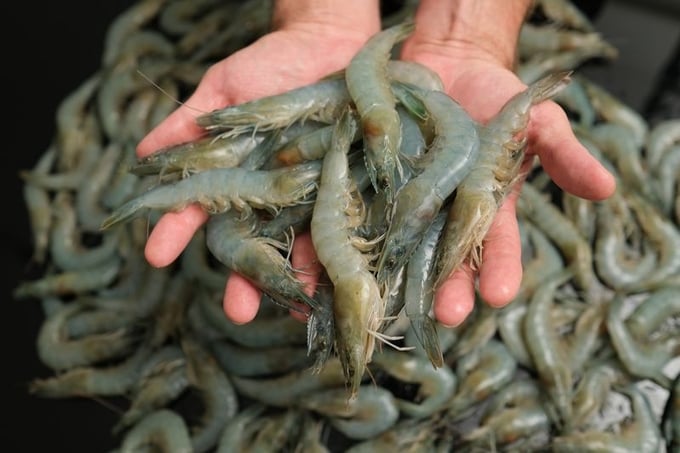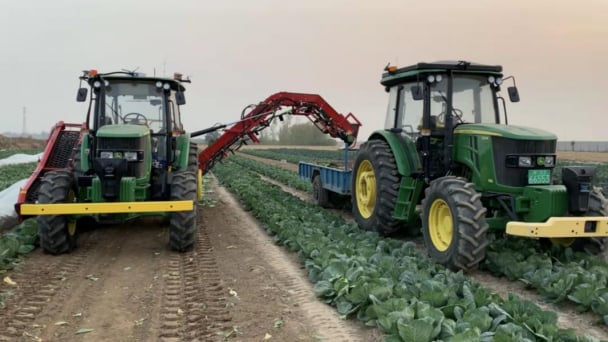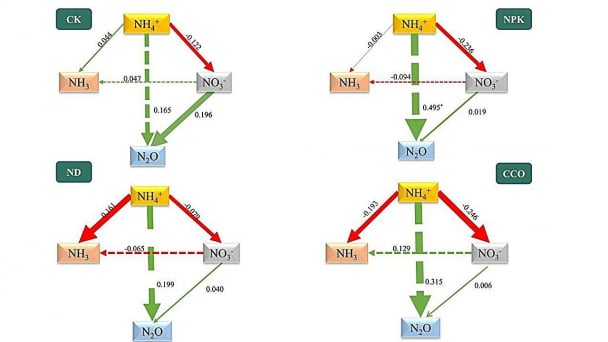June 27, 2025 | 05:40 GMT +7
June 27, 2025 | 05:40 GMT +7
Hotline: 0913.378.918
June 27, 2025 | 05:40 GMT +7
Hotline: 0913.378.918

Vertical Oceans’ king prawns. Photo: Vertical Oceans
Shrimp are one of the most popular seafood globally, but farmed production of the crustaceans can have a devastating impact on local habitats — and in some cases the climate. A Singapore-based startup now says it has a new planet friendly solution for growing the food without the sea.
When along coastlines, shrimp farms can generate a steady stream of chemicals, feces and antibiotics that are pumped back into the ocean. While that’s worrying enough, the industry has also been linked to global warming. Thirty percent of the destruction of mangroves — a powerful carbon sink — and coastal land-use change in Southeast Asia have been attributed to shrimp farming, according to nonprofit think tank Planet Tracker.
Trawling for wild shrimp, meanwhile, can impact other marine life and destabilize fragile ecosystems. By the time seafood reaches dinner plates in the US, Europe or Japan, it’s often traveled thousands of miles from farms in China, Thailand or Brazil — racking up a hefty carbon footprint.
To that end, shrimp farming’s best future might look like a mashup of a data center and your local parking garage — if Vertical Oceans has anything to do with it. The startup says its algorithms enable shrimp production in autonomous tanks, which it plans to stack near onshore demand centers like Las Vegas or Tokyo, eliminating ocean discharge. The approach produces locally grown food harvested and delivered to your doorstep the same day.
“We're demonstrating what the future of efficient protein production could look like,” says co-founder and Chief Executive Officer John Diener.
Vertical Oceans is the latest company aiming to develop more sustainable onshore aquaculture models for core food sources. Land-based production of salmon, for instance, can offer ecological benefits when the fish are raised in saltwater pens because it removes the animals from natural marine habitats, eliminating the risk they can pass on viruses and parasites to wild species.
Investor appetite for food-related tech companies is surging with venture capitalists plowing more than $39 billion into the sector in 2021, double the amount they financed the year before, according to research group Pitchbook Data Inc. Although more than half of that funding went to digital grocers and online marketplaces, aquaculture is poised to become a larger part of the supply chain.
Venture capital firms Khosla Ventures and SOSV invested a combined $4 million during Vertical Oceans’ seed round mid last year.
Risks for systems like the one Vertical Oceans is building are that if either the mechanical or biological system breaks down, things can go awry, said Cyr Couturier, a marine biologist and aquaculture scientist at the Fisheries and Marine Institute of Memorial University of Newfoundland in Canada. Companies can encounter challenges when they attempt to scale up production, although Vertical Oceans' modular design should allow it to expand in small increments, as long as it can service capital requirements, he said.
Couturier said he’s seen multiple systems for salmon and shrimp production run into problems over the past decade because engineers didn't understand how the organisms would interact with the facilities they built.
“Biological systems are often unpredictable over the longer term,” Couturier said in an email.
(Bloomberg)

(VAN) In the suburbs of Beijing, there is an agricultural center spanning over 150 hectares dedicated to research, demonstration, and application of high-tech and precision agriculture.

(VAN) Researchers from the Institute of Applied Ecology of the Chinese Academy of Sciences have developed a new environmentally friendly fertilizer additive that significantly enhances crop yields while reducing emissions of harmful gases.

(VAN) Poultry production in Poland, which has only started recovering from devastating bird flu outbreaks earlier this year, has been hit by a series of outbreaks of Newcastle disease, with the veterinary situation deteriorating rapidly.

(VAN) Extensive licensing requirements raise concerns about intellectual property theft.

(VAN) As of Friday, a salmonella outbreak linked to a California egg producer had sickened at least 79 people. Of the infected people, 21 hospitalizations were reported, U.S. health officials said.

(VAN) With the war ongoing, many Ukrainian farmers and rural farming families face limited access to their land due to mines and lack the financial resources to purchase needed agricultural inputs.

(VAN) Vikas Rambal has quietly built a $5 billion business empire in manufacturing, property and solar, and catapulted onto the Rich List.